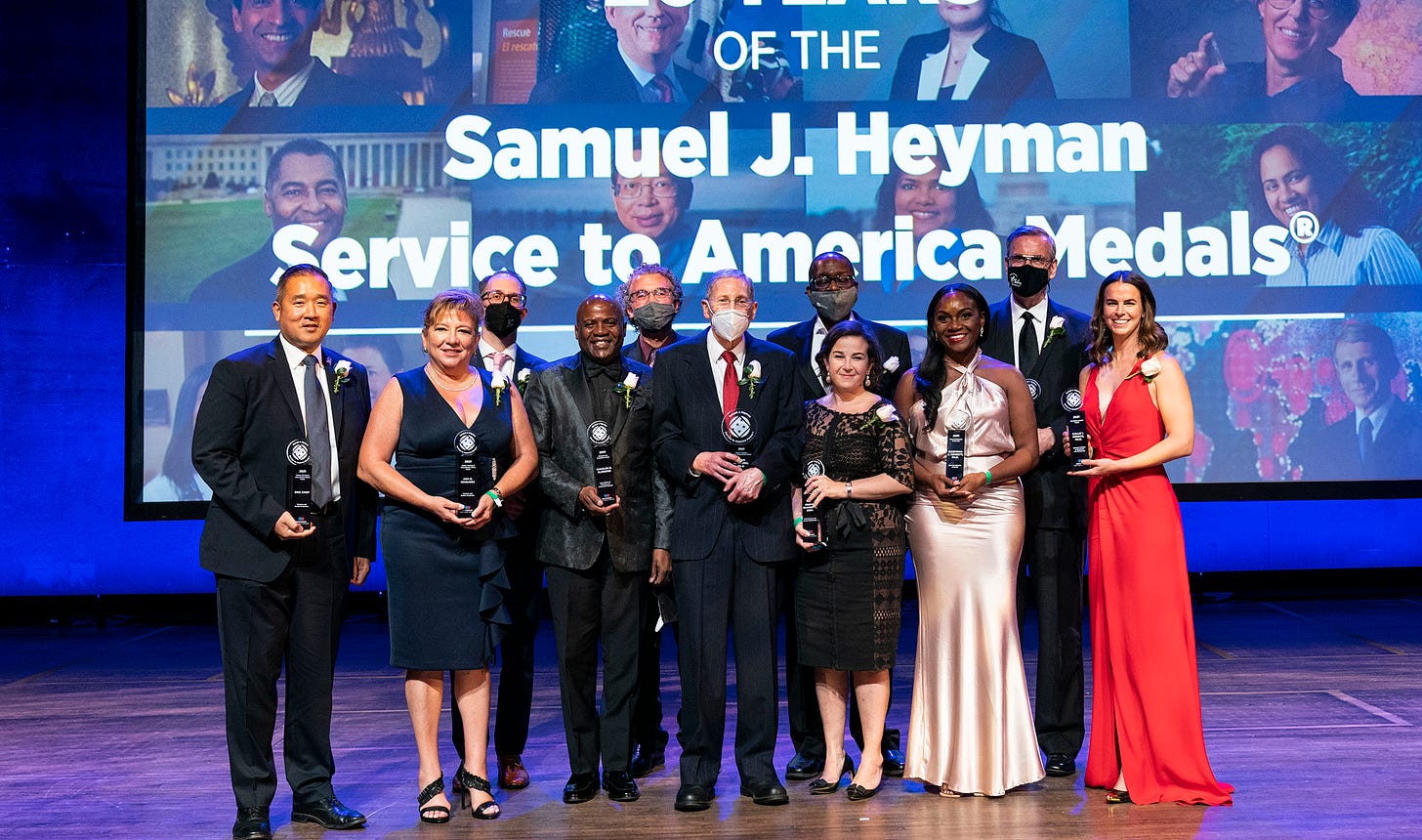Why is it so hard to say good things about public things?
This newsletter is called public things. So much of our lives are about private things—our houses, our cars, our food, our binge watching (and trying to figure out what streaming services we’re subscribed to and which ones we need just to watch a show that looks good), etc., etc.
And so much of our attention about public things is really about politics—the daily roller coaster of conflict, injustice, scandal, and the latest insane focus of “misinformation” (which is in quotes because it’s really just a euphemism for “lie”).
Or we focus on the bad public things that urgently demand our attention—cops killing black men, incarceration, climate change (the planet belongs to all of us), lead in water systems, poverty and homelessness (no, it’s not just a failure of “individual gumption”), small things like potholes or long lines at the DMV, and big things like democracy (whether we’ll still have one; whether we every really did; whether we even know what it means).
But there are good public things too. Last week I was in Niagara Falls, New York, giving a workshop at the annual convention of the Public Employee Federation (PEF), a union representing tens of thousands of New York state workers. They do all kinds of things—social workers, probation officers, wage enforcement inspectors, and many, many others. I even met a state archeologist.
The workshop was about answering one important question: If they are proud of their work and they do inspiring things for the public (to me at least), then why do New Yorkers dislike them so much? They had plenty of on-the-job issues in their understaffed agencies, but we spent a couple of hours talking about what they actually do in their jobs. It became clear that they don’t even do very much with each other (workers in different agencies didn’t even know what their colleagues in other agencies do) or with their neighbors, friends, family, and the rest of us. As we wrapped up, they asked themselves: Why don’t we do that more often? Good question.
After I got home this week, the Sammies were announced—these are awards given out by the Partnership for Public Service to 12 public servants who’ve done important work for the country over the last year. It’s a cool list of scientists, public health professionals, and folks doing things I’ve never heard of. It’s known as the “Oscars of government service.”
It’s important to recognize public servants. There are lots of them, and mostly we have no idea what they do and how it affects us—individually and collectively. If we don’t understand nor recognize their contributions, then we’re leaving the field to the anti-government message machine. Sometimes we even inadvertently help it along because there’s plenty of public things that aren’t working well, that are controlled by racists or narrow corporate interests, or that simply don’t have enough resources to do anything but fail to deliver.
It’s even not easy for me to talk about good things in government (and that’s part of my job).
When I first scanned the list and saw that two people from U.S. Customs and Border Protection (CBP) had been awarded Public Service Awards, my instinct was to assume that this was part of an effort to appease conservatives in Congress. So, I moved on and didn’t share the list (on social media pages, the transmitters of all truth).
I was wrong. It turns out that there are folks in CBP doing very cool things. (I know this isn’t ICE, but again, my mind lumps it all together—government border stuff is bad).
The two honorees from CBP are Ana Hinojosa, Executive Director of the Trade Remedy Law Enforcement Directorate, and Eric Choy, the Deputy Director. They were honored for their expansion of enforcement action against importers bringing in products made with forced labor. It’s cool. For example:
The blocked shipments have included cotton garments, toys, potassium, hair products, peeled garlic and the plant extract stevia from China; disposable rubber gloves from Malaysia; tobacco products from Malawi; gold from the Democratic Republic of the Congo; cotton products from Turkmenistan; and artisanal rough-cut diamonds from Zimbabwe.
Now back to that nagging reluctance to share—or say anything positive about an agency that I’m inclined to dislike (based on pretty much an almost complete lack of knowledge) or even government at all. I’d think about the people I know doing important work on international labor standards, sweatshops, human trafficking and think I shouldn’t step into their area of expertise and say something stupid—or wrong.
There’s probably much more to the story of their work—perhaps cases they’ve let slip by, small fines and weak sanctions given to the violators, and, perhaps, their relationships with offenders. Bottom line, I’m not an expert so it’d be easier and far more comfortable to say something they did wrong (which requires zero expertise and incredibly limited knowledge).
By the way, I did look at their LinkedIn pages—both are lifelong public servants.
In the end I did write this and I’m going to keep pointing to positive examples of public things. And I’ll point out when public things are failing to live up to their public purpose. What I’ll try to do, as we say, is critique the public institution without discrediting the idea of public things.
Quick Music bits
Live shows are back (vaccinated and masked). I’ve seen some great ones in the last two weeks:
Carsie Blanton – at Hotel Café in Los Angeles
Accidentals – at NYC City Winery.
Let it Grow—COP26 is happening in Glasgow this week. Check all the new cool videos from folks around the world at the bottom of the webpage.
P.S. My book, The Privatization of Everything, comes out of Nov. 23. Pre-ordered copies are already hitting mailboxes. You in?




